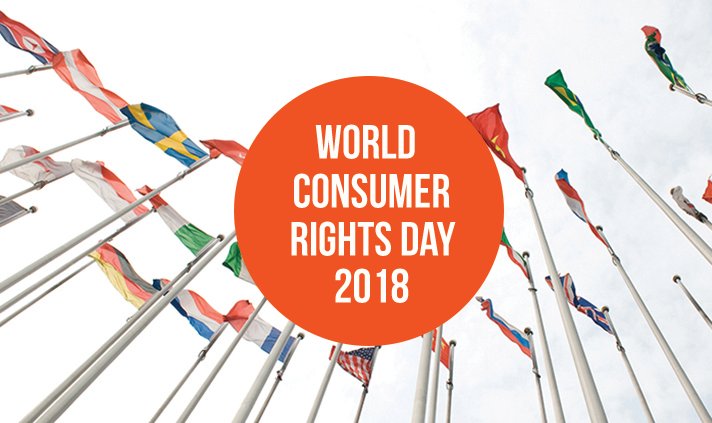March 15 is World Consumer Rights Day – an annual event inspired by US President John F Kennedy who, on this day in 1962, addressed the issue of consumer rights to the U.S. Congress. With its inaugural year in the form it has now taken, 2018’s World Consumer Rights Day is seeking to tackle a truly pertinent issue of our time: the digital marketplace.
The fact is that nowadays over 50% of the world’s population has access to the internet. That’s around 3.5 billion people of whom over half purchase goods online. According to additional figures disseminated by Consumers International, the body that champions consumer rights globally, the global ecommerce industry is set to increase from 1.9 trillion U.S. dollars in 2016 to over 4 trillion U.S. dollars in 2020.
With the exponential growth in online commerce over the past 18 years showing no sign of slowing down the industry is always evolving the ways in which it protects consumers. However, it doesn’t always keep up and therefore World Consumer Rights Day 2018 is focussing on three key campaign areas:
- Access to the digital marketplace
- Scams that are orchestrated through it
- Online protection of consumers and the businesses they interact with.
Access to the digital marketplace
There is an increasing movement towards recognising access to the internet as a human right within the international community in order that people may exercise their freedom of speech and expression. Indeed, in 2016 the United Nations released a non-binding resolution that criticised any government restrictions on web access, essentially stating that online human rights should be protected just as they are offline.
This applies to commerce, as a form of both national and international development, just as it does other fundamental rights. Limiting or limited access to the digital marketplace puts people and countries at a disadvantage, with the ultimate outcome being a bigger inequality between those who can access it, and those who cannot. It is certainly not beyond the realms of possibility that the right to access the online marketplace will become viewed along the same lines as running water and electricity in the coming years.
Online scams and fraud
As access to the digital marketplace continues to increase at a phenomenal rate, so does the number and complexity of scams that people encounter. Four of the most common are:
- Phishing: Scammers try to trick web users into giving away personal details through ‘phishing’ emails. Typically made to look like legitimate correspondence from a reputable company, they direct victims to a fake login page through which the scammer can steal personal information, sometimes leading to identity theft.
- Free trial offer: Commonly, online marketplace users are targeted with the offer of a free trial for a product or service – all they need to do is sign up using a credit card, or pay for packaging and handling. In the small print, however, they have actually signed up for a significantly monthly charge once the free trial has ended unless they opt out.
- Your computer is infected: While online a pop-up window from a legitimate-sounding company tells the browser that their computer is infected and provides a link to ‘fix’ it – at a cost. It is only when clicked that malware is installed, the user has already handed over their credit card details and their machine is compromised.
- Misrepresentation: An online shopper purchases an item but ultimately either receives nothing, or a counterfeit product, leaving the scammer with the money paid. This is particularly common with ecommerce and affects big, trusted names such as Amazon. Auction and classified sites are similarly affected.
Online protection
It’s not only access and affordability that is being addressed through the World Consumer Rights day, secure digital marketplaces where consumers have more control over their data is the final main theme this year. Safer networks built through technological advances as well governmental policy and regulation changes – both national and international – to protect consumers against cybercrime will increasingly be required.
Here in the UK there are fairly rigorous regulations with regards ecommerce and the wider digital marketplace that companies and web providers have to satisfy, but this is by no means the case overseas. With the nature of the web being a globally connected network, the disparities between regulations and controls is something that needs to be addressed at an international level. Standardised levels of protection for the consumer relating to ecommerce will by no means be easy to achieve, but if there is a real desire among policy makers to enable more of the world to access the global digital marketplace, protecting the consumer must be at the heart of what they do.
World Consumer Rights Day can be followed on Twitter using the hashtag #betterdigitalworld.
Find out about Kent Business School’s International Business and other undergraduate degrees associated with the digital marketplace over on the KBS website.

